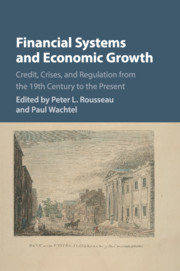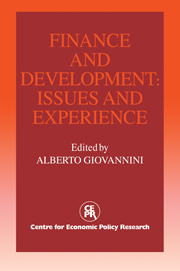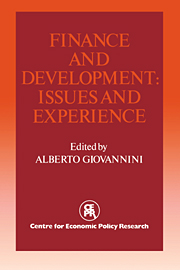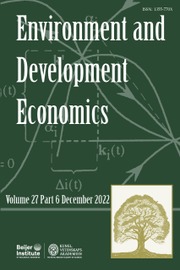Financial Systems and Economic Growth
Throughout much of the twentieth century, economists paid little heed to the role of financial intermediaries in procuring a beneficial allocation of capital. By the end of the century, however, some financial historians had begun to turn the tide, and the phrase 'finance-growth nexus' became part of the lexicon of modern economics. Recent experience has added another dimension in that countries with broader, deeper and more active financial systems might be prone to financial crises, particularly if regulatory structures are inadequate. In this book, Peter L. Rousseau and Paul Wachtel have gathered together some of today's most distinguished financial historians to examine this finance-growth nexus from both historical and modern perspectives. Some essays examine the nexus in a particular historical or cross-country context. Others, in the light of recent experience, explore the expanded nexus of finance, growth, crises, and regulation.
- Appeals to readers who have broad interests in how financial systems evolved into their present form
- Draws connections to historical precedents for today's credit booms, busts, and weak financial regulatory schemes
- Brings together the best of two key approaches to historical analysis, with data-based economic insights and supporting narratives
Reviews & endorsements
‘What kind of financial system meets the needs the needs of the economy and how best to avoid excessive financialization and instability are pressing policy issues in the wake of the Great Recession and Global Financial Crisis. These are also issues on which historical evidence sheds valuable light, as the contributors to this fine volume make demonstrably clear. Not only scholars, but also policy makers and regulators, should pay heed to this book.' Barry Eichengreen, University of California, Berkley
'This is an important collection of new essays by leading economic and financial historians and economists. Covering a broad range of countries and time periods, they make an excellent and compelling case for the at times overlooked contribution of different types of financial developments to economic growth and change.' Stanley L. Engerman, University of Rochester
'In this book, some of the top financial historians in the world explain how the various parts of the complex American financial system evolved through past crises. In the process, eventually the financial system learned how to sustain economic growth. This time will not be different if their lessons from history are learned.' Larry D. Neal, University of Illinois, Urbana-Champaign
Product details
May 2019Paperback
9781316506264
308 pages
228 × 151 × 18 mm
0.53kg
26 b/w illus.
Available
Table of Contents
- Introduction Peter L. Rousseau and Paul Wachtel
- 1. Growing up to stability? Financial globalization, financial development, and financial crises Michael D. Bordo and Christopher M. Meissner
- 2. Episodes of financial deepening: credit booms or growth generators? Peter L. Rousseau and Paul Wachtel
- 3. Financing US economic growth, 1790–1860: corporations, markets, and the real economy Robert E. Wright
- 4. Banks and democracy John Joseph Wallis
- 5. Finance, economic growth, and globalization in the era of the Cold War Niall Ferguson
- 6. Anatomy of a regime change: underwriters' reputation, New Deal financial acts and the collapse of international capital markets, 1920–35 Marc Flandreau
- 7. Protecting financial stability in the aftermath of World War I: the Federal Reserve Bank of Atlanta's dissenting policy Eugene N. White
- 8. Rediscovering macro-prudential regulation: the national banking era from the perspective of 2015 Charles W. Calomiris and Mark Carlson.






